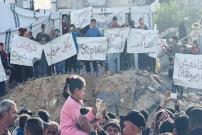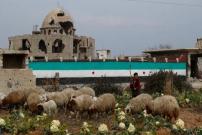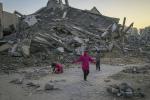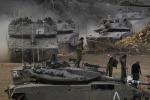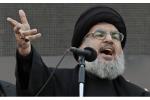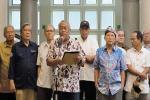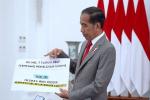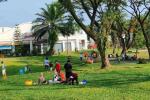Pedagang Rokok Tewas Bakar Diri Setelah Dagangannya Disita di Tunisia

TUNIS, SATUHARAPAN.COM – Seorang pedagang kaki lima di Tunisia membakar dirinya hingga tewas setelah pemerintah menyita barang dagangannya, menurut keterangan dari seorang petugas kesehatan pada hari Senin (12/10).
“Pemuda itu dibawa ke rumah sakit dengan luka bakar tingkat tiga pada hari Jumat. Dia meninggal akibat lukanya hari ini (Senin),” kata Imed Maaloul, kepala petugas kesehatan di kota Sfax, Tunisia, sebagaimana dikutip oleh kantor berita AFP.
Para petugas di Sfax mengatakan pedagang tersebut, ditangkap saat berusaha menjual 3.000 bungkus rokok selundupan.
Beberapa laporan media menyebutkan bahwa dia mengakhiri hidupnya setelah pemerintah menyita barang dagangannya.
Kejadian ini mengingatkan insiden pada Desember 2010 lalu, ketika seorang sarjana muda bernama Mohamed Bouazizi, yang menjalani hidupnya sebagai penjual buah, membakar dirinya untuk memprotes perlakuan buruk polisi di kota Sidi Bouzid.
Tindakannya telah memicu pemberontakan Arab Spring pada 2011 yang kemudian menyebar ke beberapa ibu kota Arab dan menjatuhkan rezim-rezim autokrat.
Kemiskinan dan pengangguran serta tuntutan reformasi demokrasi terjadi di pusat pemberontakan tersebut yang memaksa presiden Zine El Abidine Ben Ali untuk mundur.
Ekonomi Tunisia masih stagnan sejak pemberontakan itu dan sektor pariwisata negara telah diguncang oleh dua serangan mematikan terhadap warga asing yang dilakukan militan Islamis tahun ini.
Pertumbuhan negara hanya mencapai satu persen pada 2014 dan pemerintah baru-baru ini mengatakan bahwa angka tersebut akan turun setengahnya tahun ini.
Angka pengangguran mencapai hampir 30 persen, dengan jumlah yang lebih tinggi berada di kalangan orang-orang berusia muda. Selain itu, satu dari enam warga Tunisia hidup di bawah garis kemiskinan. (Ant/AFP)
Officials named the man as 27-year-old Adel Khadri and said he hails from an extremely poor family in Jendouba in northwestern Tunisia. He arrived in the capital a few months ago to look for work.
Witnesses told AFP that Khadri eked out a living peddling cigarettes in the streets of Tunis.
“This is a young man who sells cigarettes because of unemployment. Allahu Akbar! [God is greatest!],” he shouted before immolating himself on Habib Bourguiba avenue in front of the municipal building, according to a witness.
He was still conscious when he was rushed to the Ben Arous hospital in a Tunis suburb by emergency services, the witness said.
“His life is not in danger but he has third-degree burns to the head and the back,” said emergency services spokesman Mongi Khadhi said, adding that Khadri was under constant medical surveillance.
“He was demoralised,” said Khadhi, “His father died four years ago. He has three brothers and the family is very poor.”
Interior ministry spokesman Khalid Tarrouche too attributed Khadri’s desperate action to poverty.
“He is unemployed and came to Tunis a few months ago. He was very fragile, psychologically broken, and that is why he set himself on fire.”
Passers-by rushed to douse the flames but not before Khadri had suffered serious burn wounds.
Initially a hospital source said that “only his feet were not burned.”
He also quoted Khadri as telling a doctor: “I am sick and nobody wants to take care of me.”
Habib Bourguiba avenue in central Tunis is the centre of the 2011 revolution that ousted former dictator Zine Al Abidine Bin Ali and is lined with vendors trying to scrape together a living.
The number of people committing suicide or attempting to take their own lives has multiplied in Tunisia since a young street vendor set himself on fire on December 17, 2010, in a drastic act of protest against police harassment.
Mohammad Bu Azizi’s death in the town of Sidi Bouzid ignited a mass uprising that toppled Bin Ali the following month and touched off the Arab Spring uprisings.
Economic and social difficulties were the key factors that brought down Bin Ali’s regime and two years since his ouster unemployment and poverty continue to plague the north African country.
The simmering discontent has in the past few months sparked strikes and protests which often degenerate into violence. In November around 300 people were wounded in a week of clashes with police in the northwest of the country.
Tunisia has also been struggling to emerge from a political crisis exacerbated by the daylight murder on February 6 murder of Chokri Belaid, a leftist opposition leader.
Later Tuesday, premier-designate Ali Larayedh was to seek a vote of confidence on his new cabinet line-up from lawmakers in the National Constituent Assembly. - See more at: http://en.fujairahnews.net/News.aspx?id=4374&sid=4#sthash.VN6c4k7U.dpuf
Officials named the man as 27-year-old Adel Khadri and said he hails from an extremely poor family in Jendouba in northwestern Tunisia. He arrived in the capital a few months ago to look for work.
Witnesses told AFP that Khadri eked out a living peddling cigarettes in the streets of Tunis.
“This is a young man who sells cigarettes because of unemployment. Allahu Akbar! [God is greatest!],” he shouted before immolating himself on Habib Bourguiba avenue in front of the municipal building, according to a witness.
He was still conscious when he was rushed to the Ben Arous hospital in a Tunis suburb by emergency services, the witness said.
“His life is not in danger but he has third-degree burns to the head and the back,” said emergency services spokesman Mongi Khadhi said, adding that Khadri was under constant medical surveillance.
“He was demoralised,” said Khadhi, “His father died four years ago. He has three brothers and the family is very poor.”
Interior ministry spokesman Khalid Tarrouche too attributed Khadri’s desperate action to poverty.
“He is unemployed and came to Tunis a few months ago. He was very fragile, psychologically broken, and that is why he set himself on fire.”
Passers-by rushed to douse the flames but not before Khadri had suffered serious burn wounds.
Initially a hospital source said that “only his feet were not burned.”
He also quoted Khadri as telling a doctor: “I am sick and nobody wants to take care of me.”
Habib Bourguiba avenue in central Tunis is the centre of the 2011 revolution that ousted former dictator Zine Al Abidine Bin Ali and is lined with vendors trying to scrape together a living.
The number of people committing suicide or attempting to take their own lives has multiplied in Tunisia since a young street vendor set himself on fire on December 17, 2010, in a drastic act of protest against police harassment.
Mohammad Bu Azizi’s death in the town of Sidi Bouzid ignited a mass uprising that toppled Bin Ali the following month and touched off the Arab Spring uprisings.
Economic and social difficulties were the key factors that brought down Bin Ali’s regime and two years since his ouster unemployment and poverty continue to plague the north African country.
The simmering discontent has in the past few months sparked strikes and protests which often degenerate into violence. In November around 300 people were wounded in a week of clashes with police in the northwest of the country.
Tunisia has also been struggling to emerge from a political crisis exacerbated by the daylight murder on February 6 murder of Chokri Belaid, a leftist opposition leader.
Later Tuesday, premier-designate Ali Larayedh was to seek a vote of confidence on his new cabinet line-up from lawmakers in the National Constituent Assembly. - See more at: http://en.fujairahnews.net/News.aspx?id=4374&sid=4#sthash.VN6c4k7U.dpuf(Ant/AFP)
Editor : Eben E. Siadari

Gempa Magnitudo 6.0 Guncang Wanokaka, NTT
KUPANG, SATUHARAPAN.COM - Badan Meteorologi, Klimatologi, dan Geofisika (BMKG) mencatat sejumlah dae...







